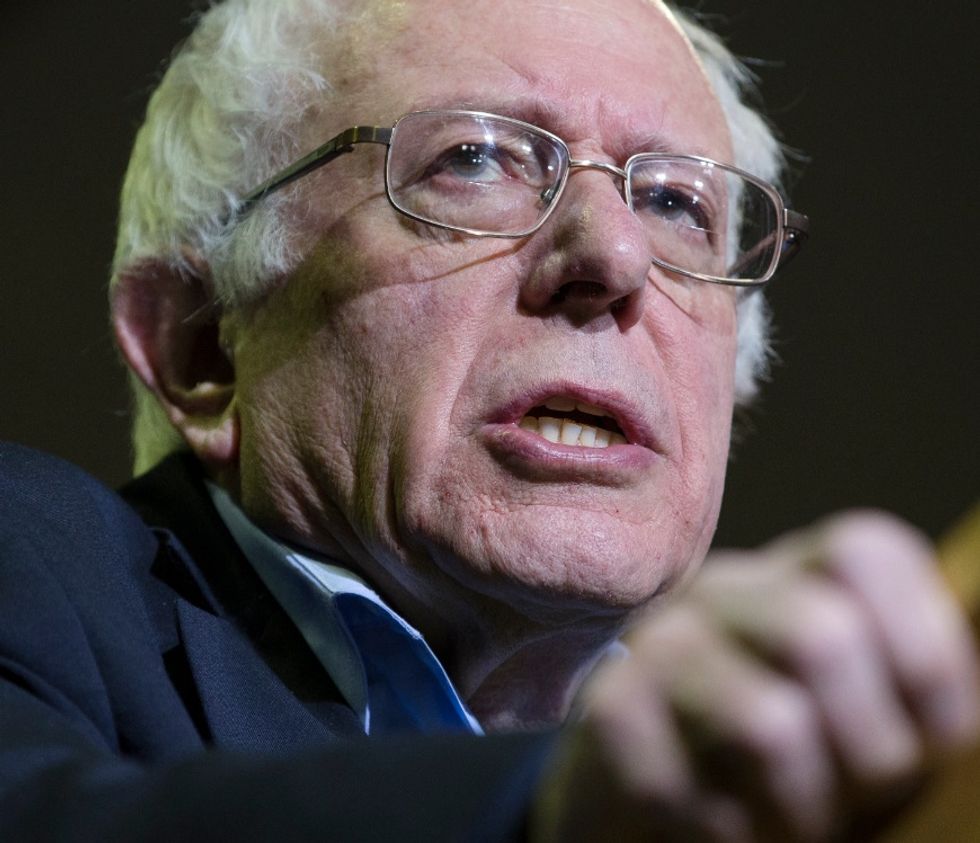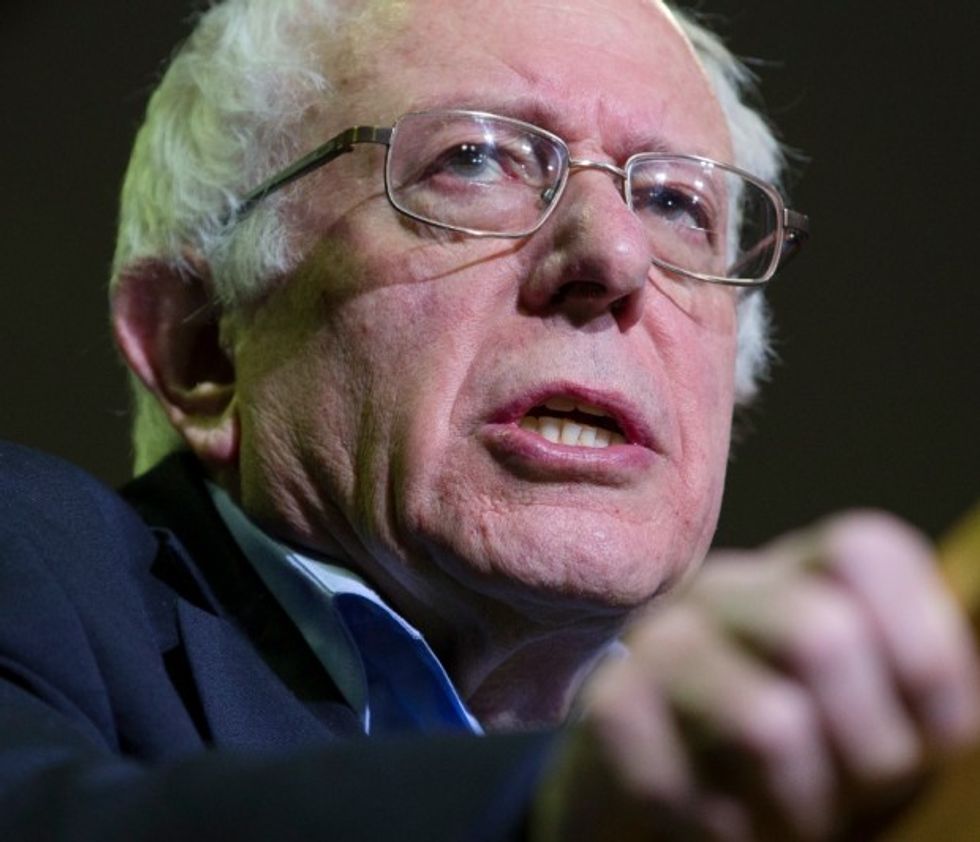
AP

Bernie the Bigot?
I abhor the name calling that degrades our political discourse, especially in election years; hence, the question mark in the title. I am not employing the word "bigot" emotionally, but clinically, in accord with the dictionary definition:
"one who regards or treats the members of a group...with hatred and intolerance."
Like virtually all progressives, Sen. Bernie Sanders unabashedly and rightly denounces prejudice and discriminatory action directed against individuals due to race, ethnicity, gender, etc. However, they have one gigantic blind spot: Progressives don't see the inconsistency of discriminating against people on the basis of their income or, in Sen. Sanders case, slandering every American who works in a particular industry, which is exactly what Sanders did when he asserted that "the business model of Wall Street is fraud" and "corruption is rampant" in American finance.

Are there cases of unethical, illegal, corrupt practices in finance? Of course there are -- no lo contendere. There also are bad apples in every line of work, including churches, schools, sports, law, medicine, and, yes, politics. Welcome to Planet Earth.
Sen. Sanders should read a book I co-wrote with my friend Craig Columbus a few years ago: "God and Man on Wall Street: The Conscience of Capitalism."
In it, Craig gives inspiring personal testimony to the goodness and honor of many patriotic Americans who have served our country nobly in the financial sector. Our book also explains the vital, helpful, indispensable role that capitalist financing has played in giving today's Americans (including even the bottom income quintile) unprecedented levels of affluence. On the whole, the men and women working in American finance merit our gratitude, not condemnation.
What is especially reprehensible about Sanders' scorched-earth vilification of the financial sector is the shameless way in which he is using "Wall Street" as a scapegoat for the financial crisis of 2007-2008. Both Republican and Democratic administrations had practiced social engineering in the attempt to increase home ownership in America.
Under the authority of the Community Reinvestment Act, various public-sector regulators, including Housing and Urban Development, the Federal Reserve, Fannie Mae and Freddie Mac, did everything from forcing lending institutions to downplay or disregard the creditworthiness of borrowers to packaging toxic mortgage-backed securities crammed with high-risk mortgages, all of which eventually led to the housing bust and financial crisis. (Yes, there were unscrupulous lenders who went hog-wild, but they were able to do so not because of a nonexistent deregulation, but due to misregulation.)
Yet here we have Sen. Sanders using the time-tested diversionary and dishonest tactic of blaming the free market for the harm that ill-conceived government policies have inflicted upon us.
The biggest threat posed by Wall Street today is not that there isn't enough government regulation and control of finance, but that there is too much. The fact is that Big Government and Big Finance are joined at the hip. Uncle Sam, being the largest debtor in the world, absolutely requires a large, functioning financial infrastructure to maintain a viable market for its trillions of dollars of debt instruments. Given this reality, the federal government will bail out Wall Street again if it has to.
The financial crisis in 2008 set us on a course toward the nationalization of our financial industry. It started with the de facto nationalization of JP Morgan in 2008. A more significant step toward nationalization was the passage of the Dodd-Frank bill in 2010, which authorizes future Wall Street bailouts.
In his anti-Wall Street diatribes, Sanders fulminates against bailouts, so one would think he would favor the repeal of Dodd-Frank. Not a chance. He loves the political leverage that Dodd-Frank gives Uncle Sam over financial institutions. In fact, Dodd-Frank gives Uncle Sam the ability to bilk Wall Street firms to the tune of billions of dollars in "settlements" for dubious liabilities that, in some cases, the feds themselves had compelled them to incur.
Sanders cites settlements resulting from government entrapment as evidence of Wall Street's corruption. How convenient. The ugly fact is that the feds and Wall Street mega-banks now have an incestuous relationship by which the banks enjoy the privileged status of being regarded as indispensable by Uncle Sam while the Attorney General can periodically collect billions in settlements to be spent on who-knows-what.
Clearly, the long-term independence of financial institutions is at risk. Progressives will continue to bad-mouth banks to justify greater governmental control of them. Sanders himself embraces an explicitly Marxian solution -- Point No. 5 in Marx's 10-point platform for socializing an economy, the "centralization of credit in the hands of the state, by means of a national bank with state capital and an exclusive monopoly."
I hope that Sen. Sanders will prove that he is not a bigot by apologizing to the many good people who work in finance for his intemperate and vile slanders. And let's hope that the American people perceive that Sanders' proposed remedy for both alleged and actual financial malfeasance -- to transform this vital industry into an arm of the government -- is a case of the "cure" being far more lethal than the disease. Bureaucratic (mis)management of the flow of capital would lead to economic stagnation and a depressing regimentation of daily economic life.
Mark Hendrickson is Fellow for Economic and Social Policy with the Center for Vision & Values at Grove City College.
–
TheBlaze contributor channel supports an open discourse on a range of views. The opinions expressed in this channel are solely those of each individual author.